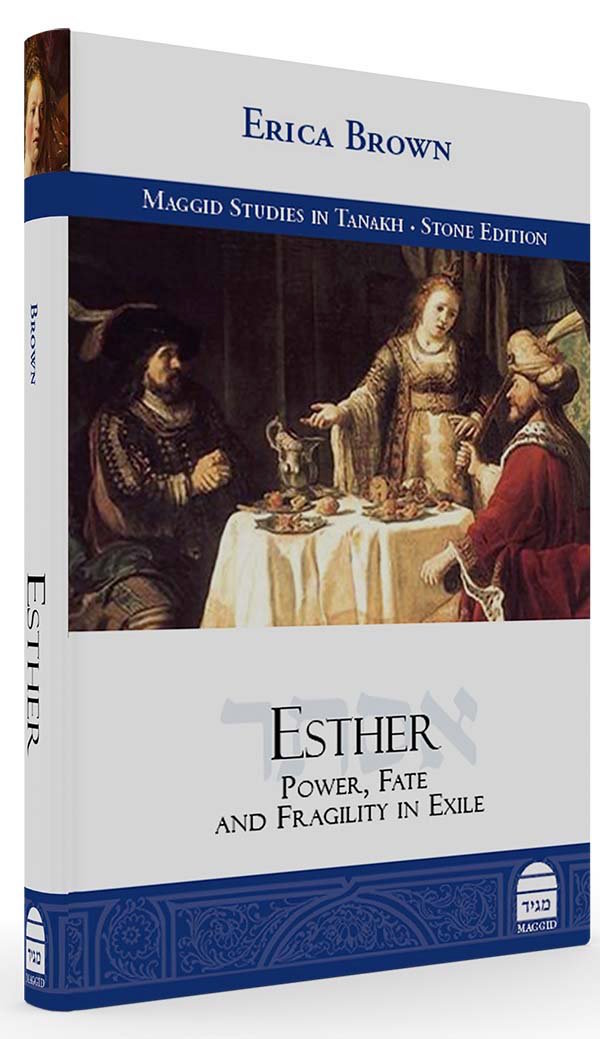‘Esther: Power, Fate, and Fragility in Exile’
As we are now a week into the Adar, we’re all affected by the month’s joyous atmosphere as we consider the Book of Esther.
Recently, Maggid Books published a detailed commentary of essays on the numerous themes of the Book of Esther and the feast of Purim by one of today’s most distinguished narrators of the biblical tradition, Dr. Erica Brown, director of the Mayberg Center for Jewish Education and leadership and an associate professor of curriculum and pedagogy at George Washington University. She the author of 12 books on the bible and spirituality.
This following discussion of “Esther: Power, Fate, and Fragility in Exile” is excerpted from an online interview with the author that focused on the book’s theme and the author’s purpose.
“The megillah keeps us on the edge of our seats because of the tensile range of emotions throughout. There is King Ahasuerus’ rage and impulsivity. Haman’s evil. Esther’s beauty. Mordechai’s anxiety and then finally the joy that spills over from the protagonists to the Jews of Shushan and then the Jews in the 127 provinces of the Persian empire. Esther and Mordechai, indeed all the Jews of this empire at this time experienced a constant change in this emotionally charged political landscape.
“We as readers see unchecked power in this narrative. This includes the King’s power over Queen Vashti and then, by a strange act of extrapolation, the power each male was given to be the dominant member of the household.
“Power and fate ripple through a story where Mordechai stops an assassination plot against the king, but, Haman is rewarded with enhanced status and authority. Haman manipulates the king into declaring an entire nation subject to death, making not only the Jews, but every people in this vast empire to become insecure, thus the fragility noted in this book’s title.
“Power, fate and fragility is also evident for the women not selected by the king in his grotesque beauty contest.
“Haman himself moves from the power to determine the fate of others to becoming victims of the king’s ire. He was ultimately hanged not because he abused his power but because the king thought that he had made advances against his queen, Queen Esther.
“G-d is noticeably absent while all of these reversals are taking place in the narrative, suggesting that one aspect of exile is the lack of religious autonomy and thus the need to use politics rather than religion to secure safety. In the hands of a powerful, lustful and volatile ruler, it is difficult to be a citizen. Life always feels precarious.
“Not mentioning G-d may also be a condemnation of this exiled community who put their trust in an untrustworthy king rather than the King of Kings.”
I highly recommend this book to further enhance your appreciation of this joyous yet sacred holiday.
Consider this from the author’s preface:
“The Book of Esther asks its celebrants to turn the world upside down because that is what can be expected in exile: the unpredictable, the surprise turn, the change in fate. If Purim is a holiday to examine exile, then Esther is its textbook and our guide.”

 47.0°,
Overcast
47.0°,
Overcast 




